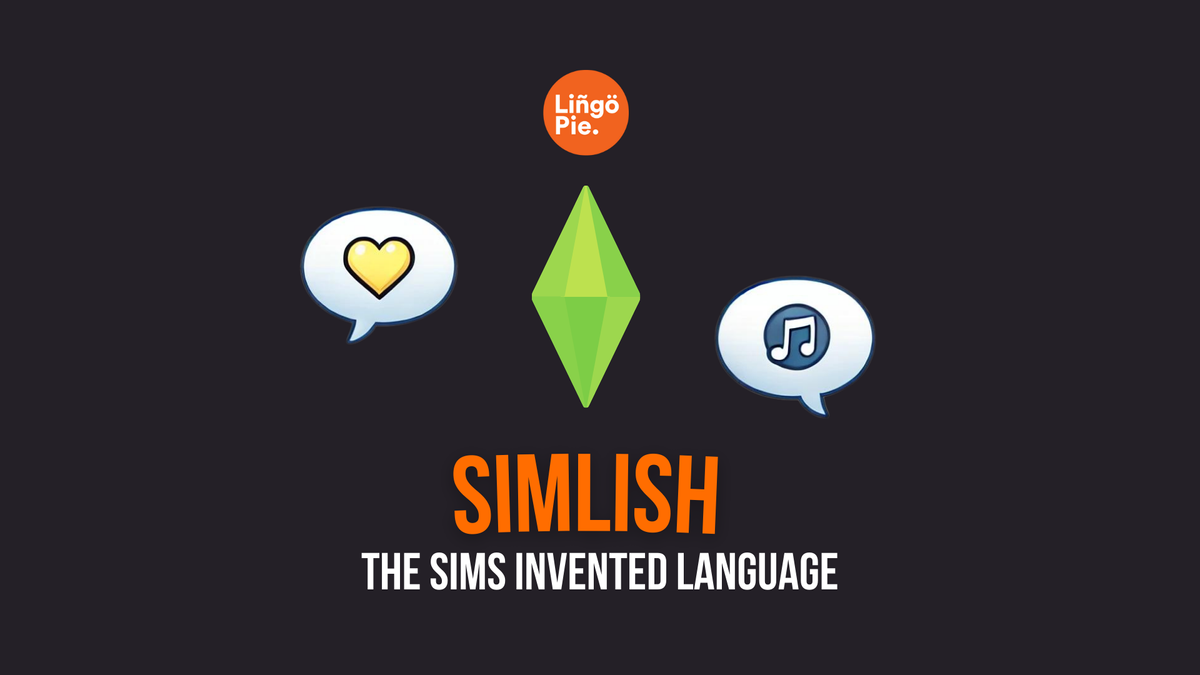Ever been watching Spanish movies set in Cuba and suddenly felt like you're missing something? It's like you're feeling every gripping scene, feeling pretty good about your Spanish skills, when BAM! – a word pops up that leaves you scratching your head.
Well, it's not your Spanish that's failing you...it's simply the Cuban slang sneaking up on you! These colorful expressions are what give Cuban Spanish its kick. So in this post, I decided to round up over 24 common Cuban slang words I've picked up from binge-watching Spanish telenovelas and movies.
Trust me, once you know these, you'll be in on the joke in no time!
Want to learn more Spanish slang? Explore these popular posts:
Why Bother with Cuban Slang?
Let's face it, Spanish isn't just Spanish. Each country, even each region, has its own flavor. Cuban slang is a big part of what makes Cuban Spanish unique.
The truth is that when you grasp local expressions, you're better equipped to understand Cuban humor, social norms, and everyday conversations. This knowledge can be invaluable whether you're traveling to Cuba, working with Cuban colleagues, or simply wanting to appreciate Cuban literature and media more fully.
Moreover, learning Cuban slang enhances your overall Spanish skills. It exposes you to the rich diversity of the Spanish language, helping you appreciate how the language varies across different Spanish-speaking countries.
24 Easy Cuban Slang Words
Acere
"Acere" is the Cuban equivalent of "dude" or "mate" in English. This versatile term is a cornerstone of casual Cuban conversation, used to address friends, acquaintances, or even strangers in a friendly manner.
- "Acere, ¿que bolá?" - "What's up, dude?"
Pinchar
In Cuban slang, "pinchar" means "to work." This creative use of language transforms a word typically associated with sharp objects into a description of daily labor.
- "Tengo que pinchar mañana temprano." (I have to work early tomorrow.)
Jamar
"Jamar" is the Cuban slang equivalent of "to eat". This Spanish verb adds a dash of informality to discussions about food and dining.
- "¿Dónde vamos a jamar esta noche?" - "Where are we going to eat tonight?"

Camello
Ever watched a Spanish-speaking vlogger? If yes, then you probably came across the famous "camello" before. In Cuban slang, "camello" (literally "camel") refers to the articulated buses common in Havana. This clever nickname stems from the bus's distinctive shape, with its raised middle section resembling a camel's hump.
- "Voy a coger un camello para llegar al centro." (I'm going to take a bus to get downtown.)
Que bolá
"Que bolá" is the Cuban equivalent of "What's up?" or "How's it going?". This casual greeting is a staple of Cuban conversations, used to initiate friendly exchanges or check in with friends and acquaintances.
- "Oye, que bolá con tu nuevo trabajo?" - "Hey, how's your new job going?"
Guagua
"Guagua" is the word you'll need when talking about buses in Cuba. Mastering this term will not only help you navigate public transportation but also demonstrate your familiarity with local lingo, potentially leading to more engaging conversations with Cubans.
- "¿Cada cuánto pasa la guagua por aquí?" (How often does the bus come by here?)
Guarachar
This vibrant verb stems from "guaracha," a popular Cuban music genre, illustrating how deeply Spanish music is celebrated in Cuban culture.
- "Esta noche vamos a guarachar" - "Tonight we're going to party"

Botella
In Cuba, "botella" doesn't just mean "bottle" - it's slang for "hitchhiking" or "getting a ride". Understanding this term is crucial for navigating Cuba's unique transportation culture, where ride-sharing is common due to limited public transit options.
- "¿Me puedes dar botella hasta el centro?" (Can you give me a ride to the city center?)
Botero
"Botero" is Cuban slang for a taxi driver. Knowing this term can be helpful when you need to arrange transportation in Cuba, especially in situations where private cars might be scarce.
- "Necesitamos un botero para llegar al aeropuerto" - "We need a taxi driver to get to the airport"
Jeva / Jevo
Ready to talk romance, Cuban style? "Jeva" (feminine) and "jevo" (masculine) are your go-to Spanish words for girlfriend and boyfriend. These terms pack more punch than their formal counterparts, adding a dash of street cred to your love life chatter.
- "Te presento a mi jevo, Santiago" - "Let me introduce you to my boyfriend, Santiago"
Gabeto
Ever heard a Cuban say they're heading to the "gabeto"? No, it's not some cool new hangout spot - it's just their way of saying "home"! This quirky term (often shortened to "gao") adds a touch of local flavor to conversations about daily routines.
- "Estoy cansado, me voy pal gao" - "I'm tired, I'm heading home"
Yuma
Got a feeling locals are calling you something behind your back? Chances are, it's "yuma". This catch-all term for foreigners is Cuba's equivalent of "gringo". But don't sweat it - it's not an insult, just a playful way to spot the tourists from the locals.
- "Mira ese yuma con la cámara, debe ser su primera vez en La Habana" - "Look at that foreigner with the camera, must be his first time in Havana"
Caballito
Spot a cop on a motorcycle in Cuba? You've just seen a "caballito" (little horse)! This cheeky nickname for motorcycle police adds a touch of humor to law enforcement chat. Just remember, it's all fun and games until you're trying to explain yourself to an actual caballito!
- "Cuidado, viene un caballito por la esquina" - "Watch out, there's a motorcycle cop coming around the corner"

Almendrón
"Almendrón" refers to the classic American cars from the 1950s that are ubiquitous in Cuba. These vintage vehicles, often used as taxis, have become a symbol of Cuban ingenuity and resilience.
- "Tomamos un almendrón para ir al Malecón" - "We took a vintage car to go to the Malecón"
Está volado
"Está volado" (or "volao" in spoken form) means "it's amazing" or "mind-blowing" in Cuban slang. Use this phrase to express extreme appreciation or admiration for something exceptional.
- "El concierto anoche estaba volao" - "Last night's concert was mind-blowing"
En candela
"En candela" literally means "on fire," but in Cuban slang, it describes a difficult or problematic situation. It's used to express that someone is having a hard time or that circumstances are unfavorable.
- "Mi jefe está en candela con este proyecto" - "My boss is having a tough time with this project"
Embullarse
Basically, the term "embullarse" is a uniquely Cuban verb expressing enthusiasm or excitement. It's often used when someone is looking forward to an event or is in high spirits.
- "Me embullé con la idea del viaje" - "I got excited about the idea of the trip"
Tirar un cabo
This phrase, literally "to throw a rope," is Cuban slang for offering assistance. It's a colloquial way of expressing the act of helping someone out of a difficult situation.
- "¿Me puedes tirar un cabo con la mudanza?" - "Can you help me out with the move?"
Chivo
"Chivo" in Cuban slang refers to a bicycle. This term reflects the importance of bicycles as a common mode of transportation in Cuba, especially during times of economic hardship.
- "Voy a ir en mi chivo al trabajo hoy" - "I'm going to work on my bike today"
Fresco
In Cuban slang, "fresco" (masculine) or "fresca" (feminine) describes a rude or disrespectful person. Despite its literal meaning of "fresh," in this context it's used to criticize inappropriate behavior.
- "No seas fresco, respeta a los mayores" - "Don't be rude, respect your elders"
Me resbala
The phrase "me resbala" literally means "it slides off me," but is used to express indifference or lack of concern. It's a colloquial way of saying "I don't care" or "it doesn't bother me."
- "Me resbala lo que digan los demás" - "I don't care what others say"

Paladar
In Cuba, "paladar" refers to a privately owned restaurant, often family-run. Originally a term for the roof of the mouth (palate), it has evolved to describe these establishments, which became legal in the 1990s.
- "Conozco un paladar que sirve la mejor ropa vieja" - "I know a paladar that serves the best ropa vieja"
Buscar balas
"Buscar balas" literally means "to look for bullets," but in Cuban slang, it means to look for work or to try to earn money. This phrase reflects the need to "hustle" or find ways to make ends meet.
- "Tengo que buscar balas este fin de semana" - "I need to find some work this weekend"
Monstruo
While "monstruo" literally means "monster," in Cuban slang it's used as a compliment to describe someone exceptionally skilled or talented in a particular area.
- "Ese pianista es un monstruo" - "That pianist is incredibly talented"
Other Cuban Slang Terms
Cuban Spanish is rich with unique expressions that might puzzle even fluent Spanish speakers from other countries. To prep you better, here's a quick guide to some additional Cuban slang terms you might encounter:
| Term | Meaning |
|---|---|
| Me piro | I'm leaving |
| La pincha | Workplace |
| Bembelequero | Gossiper |
| Surnar | To sleep deeply |
| Tu maletín | Your problem |
| ita | Term of affection for grandmothers |
| Absorbente | Straw (for drinking) |
| Qué fula | Ugly, poorly made, or disgusting |
| Comemierda | Someone who's being cheated or is very stupid |
| Mango | Sexually attractive person |
| Dichabar | To betray trust |
| Singar | To disturb |
| Echar pila | To flirt |
Learn Spanish At Lingopie
Want to really nail these phrases and sound like you were born in Havana? Here's where Lingopie comes in clutch:
- Binge-watch Cuban shows and movies with interactive subtitles
- Learn in context - see how real Cubans use these phrases in action
- Practice your pronunciation with Lingopie's speech recognition tool
- Build your vocabulary with personalized flashcards
Trust me, I've been there - stumbling through conversations, feeling like a total "yuma." But with these slang terms in your back pocket and Lingopie as your secret weapon, you'll be "tirando un cabo" (lending a hand) to confused tourists in no time.
So why wait? Give Lingopie a try today!






![30+ Modern English Slang Terms For Money [Guide]](/blog/content/images/size/w300/2025/06/Slang-term-for-money.jpg)
![5 Official Spanish Language Tests To Show Your Proficiency Level [Guide]](/blog/content/images/size/w300/2025/06/Spanish-Language-Tests.jpg)

![Why Memorizing Spanish Words Won’t Make You Fluent [Tips]](/blog/content/images/size/w300/2025/06/how-to-practice-spanish-vocabulary.jpg)